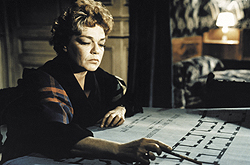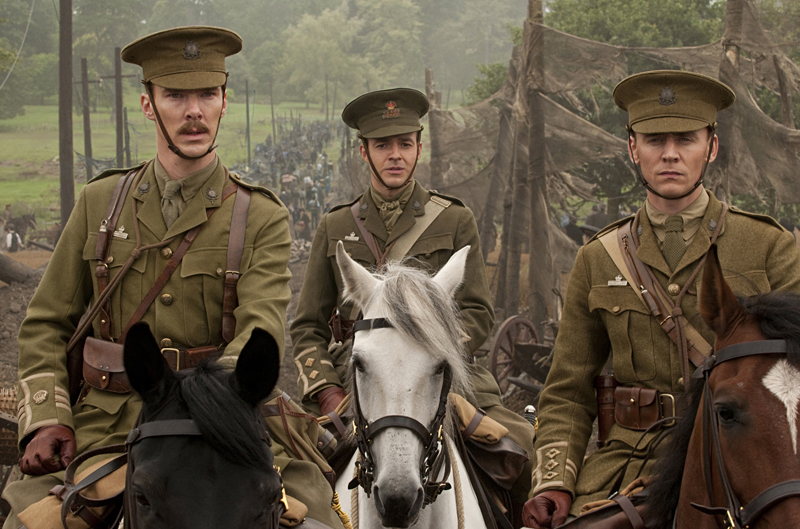As allusive as its title, Jean-Pierre Melville’s all but unknown Shadows, a French resistance saga made—and tepidly received—in 1969, emerges from the mists of time in a new 35 mm restoration as a career-capping epic tragedy. Cahiers du Cinéma dismissed it as “Gaullist film art.” But it’s here that Melville, renowned for his tendency toward abstraction, fully achieved his notion of the sublime, with “empty” compositions and near- theatrical blocking, as well as methodical suspense, cosmic fatalism, and a sense of grim solitude.
Adapted from Joseph Kessel’s wartime novel, Shadows follows a taciturn resistance agent (the bulky, self-contained Lino Ventura) through a series of arrests, escapes, and betrayals. Wearing glasses and carrying a briefcase, he looks like an accountant and thinks like a chess master. He has no past, no family, and—except for brief moments of terror—no expression. Dodging the Gestapo or, in an excruciating scene, executing a traitor, Ventura is reason made tangible, exuding a purity of purpose beyond mere action. Moving from rainy prison camps through sun-baked Marseilles and blitzed London to the bleak windswept towns of northern France, Shadows sustains an atmosphere of total paranoia, occasionally leavened with existential pathos.
Although combat is constant, what’s striking about this war movie is the utter absence of a conventional battlefield. (During his brief London visit, Ventura visits a serviceman’s club where the dancing doesn’t stop even when the bombs start falling and the building shakes. He alone is startled—it’s a different theater of operations.) War in Shadows is a problem to be solved or a theory tested, often in a few seconds and almost always under the most extreme circumstances.
Some may find Melville’s tone too detached. But the filmmaker—who described his movie as “a retrospective reverie”—is himself something of a chess player. Only when his vision reaches its chilling conclusion is it apparent that the title is absolutely literal. This really is an army of shadows. They are, all of them, dead men. J. HOBERMAN








